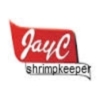-
Must Read SKF Articles
-
Posts
-
By sdlTBfanUK · Posted
I believe these to be very rare in Australia so you may even consider making it a longer term plan and produce your own by starting with the best CRS you can get as that is where the pure lines started! Depends how patient and interested in the project you are, but would save money as well? If I recall correctly it takes from 8 generations of selective breeding? They sell them at micro aquatic shop but do not ship to Western Australia, but that means they are available in Australia. https://microaquaticshop.com.au/products/pure-red-line-grade-ss-shrimp Good luck and just maybe smeone on here may point you in the right direction or be able to supply you with some. -
By Jimmy · Posted
Hi Guys, Does anyone know where to buy PRL shrimps in WA, not the CRS please. Thanks Regards -
By Subtlefly · Posted
Yes it’s super accurate to position where I want now and stay there- I am satisfied. All the fish and shrimpers are doing excellent! Coming up on 4 years running! -
By sdlTBfanUK · Posted
You must be pleased with that, it looks better and is much more robust and less likely to damage or leaks! The tank looks very natural now it has been running for a time. I see the ember tetras, how are the blue shrimp doing, I see a few? The cat and dog look very content and unimpressed, lol. -
By Subtlefly · Posted
https://youtu.be/IzMSYm14CCU done!
-


Recommended Posts
Create an account or sign in to comment
You need to be a member in order to leave a comment
Create an account
Sign up for a new account in our community. It's easy!
Register a new accountSign in
Already have an account? Sign in here.
Sign In Now